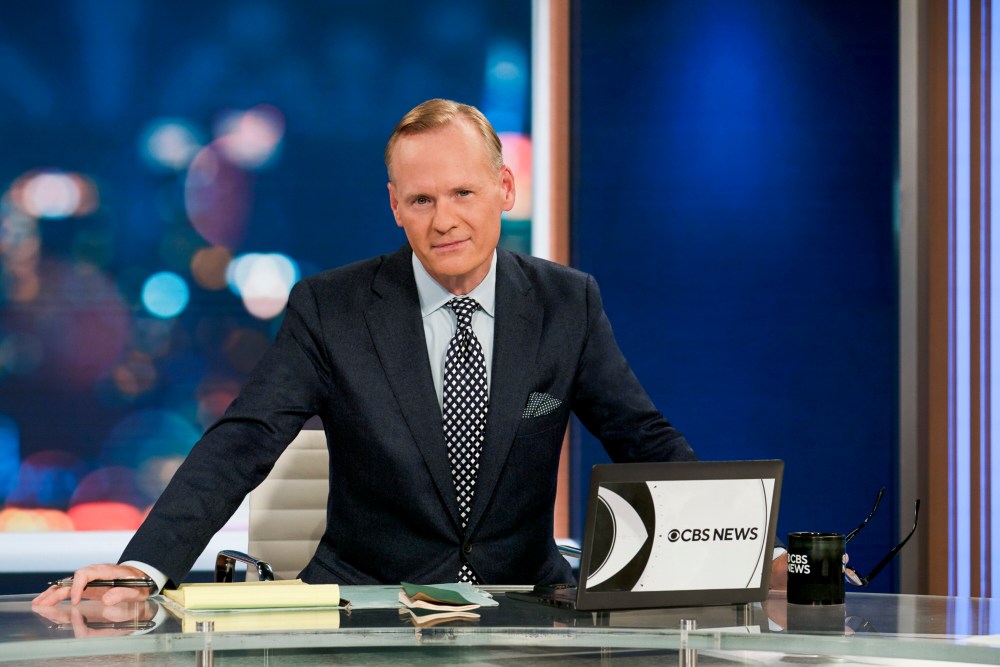When a seasoned journalist like John Dickerson decides to walk away, it’s never just a personnel change — it’s a signal. After decades in the business and nearly sixteen years with CBS News, Dickerson has announced he will leave the network at the end of this year. His decision arrives at a moment when CBS News is undergoing one of its most significant transitions in recent memory — a change that may reshape not only its flagship newscast but the network’s very editorial identity.
A Respected Voice Steps Away
John Dickerson has long been one of the most thoughtful, literate, and steady presences in American journalism. Whether moderating Face the Nation, co-anchoring CBS This Morning, or guiding viewers through the Evening News, his style has always been less about noise and more about nuance.
His calm, essay-like approach to political coverage made him stand apart in an era of breaking-news adrenaline. Dickerson wasn’t just reading headlines; he was explaining why they mattered. To many longtime viewers, his voice represented the last trace of the classic CBS News tradition — careful, contextual, deeply human reporting.
So when he announced that his tenure would end this December, it landed as both unsurprising and bittersweet. Inside media circles, there had been whispers that Dickerson might be restless amid CBS’s latest editorial overhaul. Still, his exit feels symbolic — as if a certain era of CBS storytelling is quietly closing its last chapter.
Inside CBS’s New Era
Dickerson’s departure comes as CBS News is being reshaped from the top down. Under new leadership, the network has sought to redefine what “Evening News” means in a digital-first era. The experiment of pairing Dickerson with Maurice DuBois earlier this year was meant to blend two energies: DuBois’s traditional anchor presence with Dickerson’s analytical sharpness.
But audiences, fragmented across streaming and social platforms, never quite adjusted. Ratings for the show have been uneven, and internally, producers have wrestled with whether to lean into hard news or lean back toward conversation and commentary.
For decades, CBS Evening News carried the aura of Cronkite, Rather, and Couric — a national ritual at the dinner hour. Today, it’s fighting for relevance against real-time digital updates and opinion-driven coverage elsewhere. The network’s challenge is not just about who sits behind the desk, but what that desk stands for in 2025.
A Broader Industry Reckoning
Dickerson’s move underscores a broader transformation happening across American broadcast journalism. Major networks are confronting shrinking audiences, tighter budgets, and shifting trust. The old playbook — star anchors, glossy sets, and corporate slogans — no longer guarantees loyalty.
Viewers now crave authenticity, speed, and depth all at once. They want journalism that feels transparent, not polished. And that’s precisely the tension CBS has been grappling with: how to preserve its historic credibility while staying relevant in a post-cable, algorithm-driven age.
For journalists like Dickerson, whose craft has always been grounded in patience and reflection, that new rhythm can feel alien. His departure, then, may be less about personal dissatisfaction and more about creative mismatch — a writer in a world now ruled by metrics.
What Happens Next for CBS
Behind the scenes, CBS News executives are said to be exploring new on-air configurations and fresh editorial directions. Some insiders believe the network may lean toward a single anchor again — someone younger, more digitally fluent, perhaps with a profile built on social engagement as much as reporting. Others argue CBS should double down on its tradition: smart, steady, old-school journalism that distinguishes it from noisier competitors.
Either way, Dickerson’s exit adds urgency to a conversation that CBS can no longer postpone. Who will define the tone of Evening News in the years ahead — a personality-driven anchor, or a journalist who disappears behind the story? The answer could determine whether the show recovers its stature or fades into nostalgia.
The Human Side of a Farewell
In his farewell note, Dickerson’s gratitude felt deeply personal. He thanked his colleagues, the audience, and the institution that shaped much of his career. You could sense the affection of a man who loves the craft of journalism even as he questions where it’s headed.
For many journalists watching from the sidelines, this moment resonates. It’s not just about CBS — it’s about the evolution of the profession itself. Newsrooms everywhere are balancing between tradition and transformation, legacy and disruption. Dickerson’s graceful exit reminds us that even in the chaos of change, integrity still matters.
A Legacy Built on Thoughtfulness
What made Dickerson rare wasn’t just his résumé — Face the Nation, 60 Minutes, CBS This Morning, and countless election-night specials — but his mind. He’s a journalist who reads history for meaning, not sound bites. His reporting always carried a touch of empathy, a sense that facts alone are not enough unless they help us understand each other better.
As he steps away, CBS loses more than an anchor; it loses a voice of balance in a polarized era. But perhaps, as he’s done throughout his career, Dickerson will find a new platform — in writing, podcasting, or independent storytelling — where his quiet intelligence can continue to reach an audience that still values depth over noise.
The Final Word
John Dickerson’s decision to leave CBS News marks a crossroads — for him, for the network, and for American broadcast journalism itself. The anchors who once defined television news are now navigating an environment where algorithms, attention spans, and ideology shape the headlines.
Whether CBS manages to reinvent itself or not, Dickerson’s exit will be remembered as a moment that captured the uneasy state of modern journalism: caught between its noble past and an unpredictable future.

